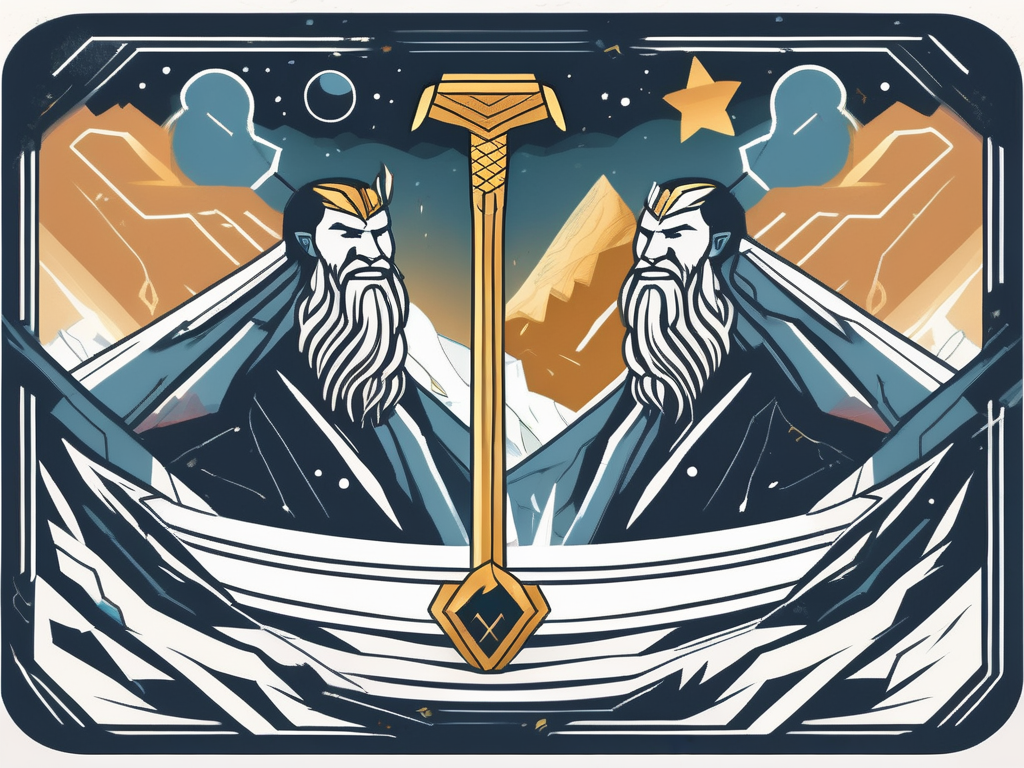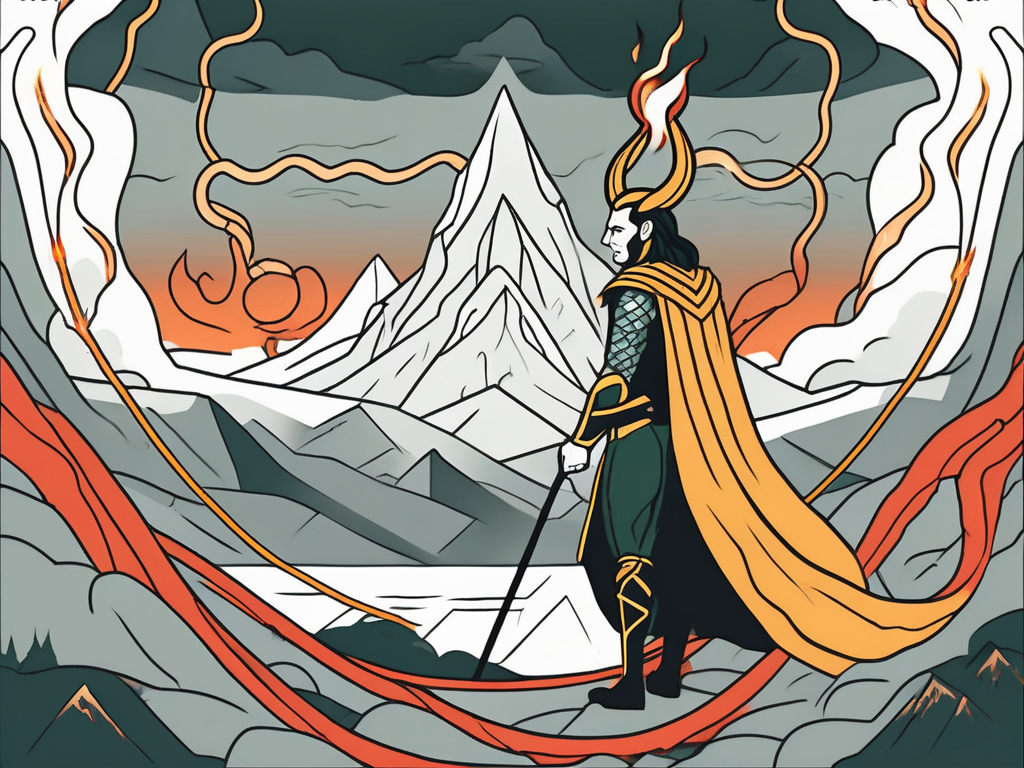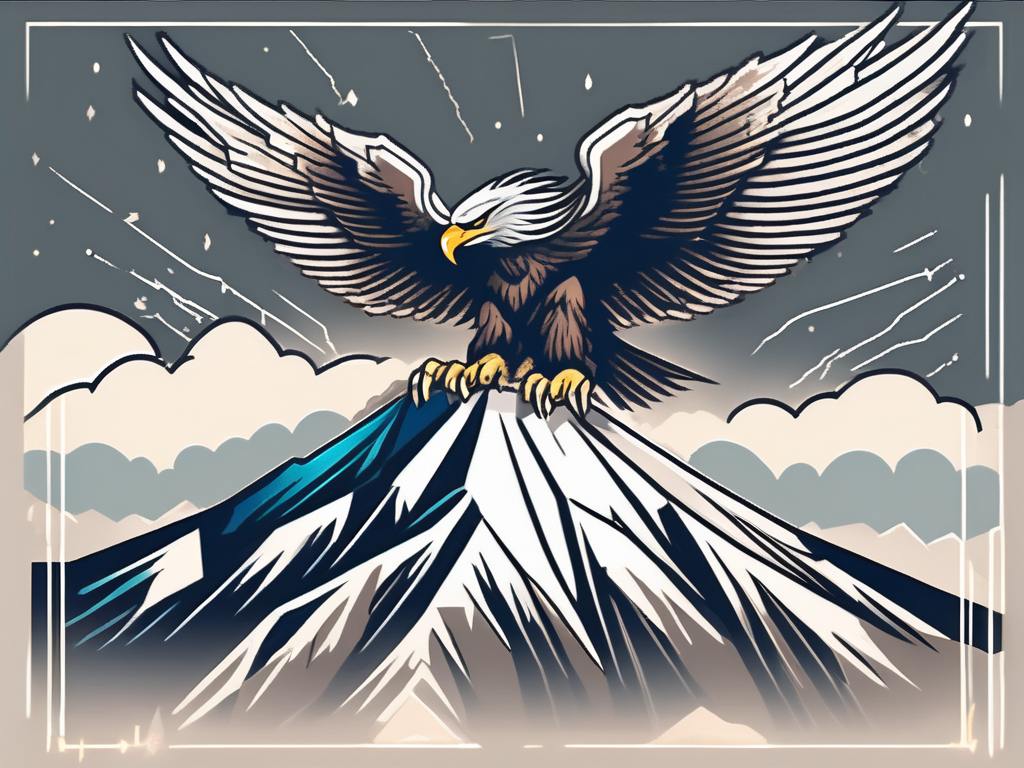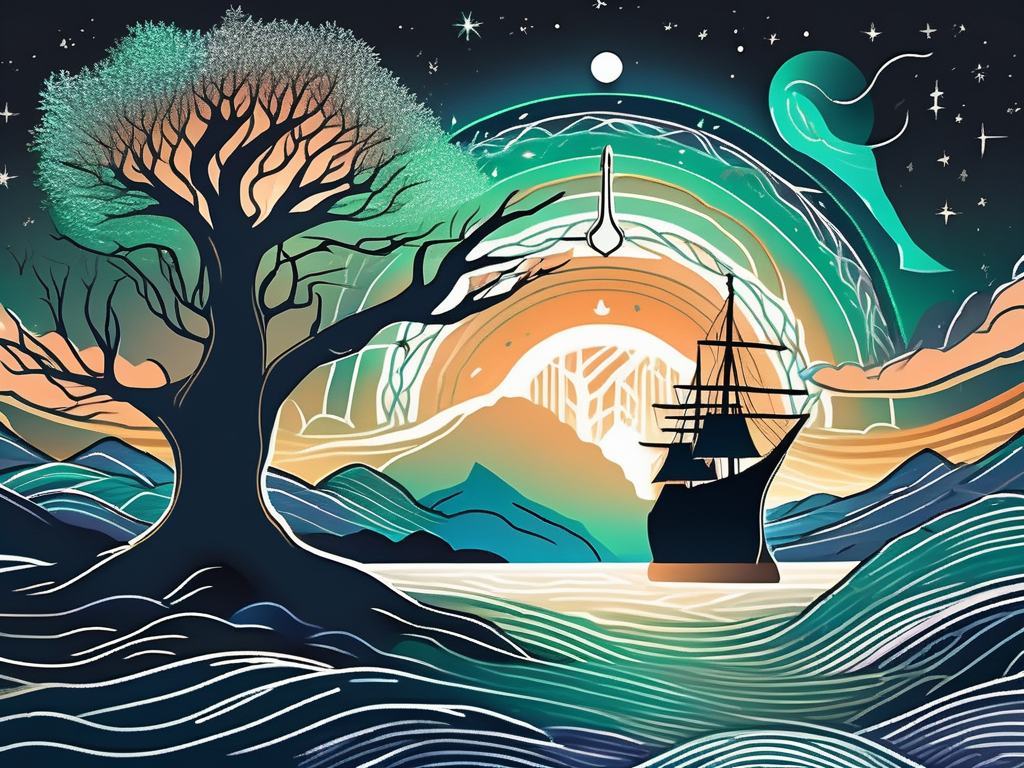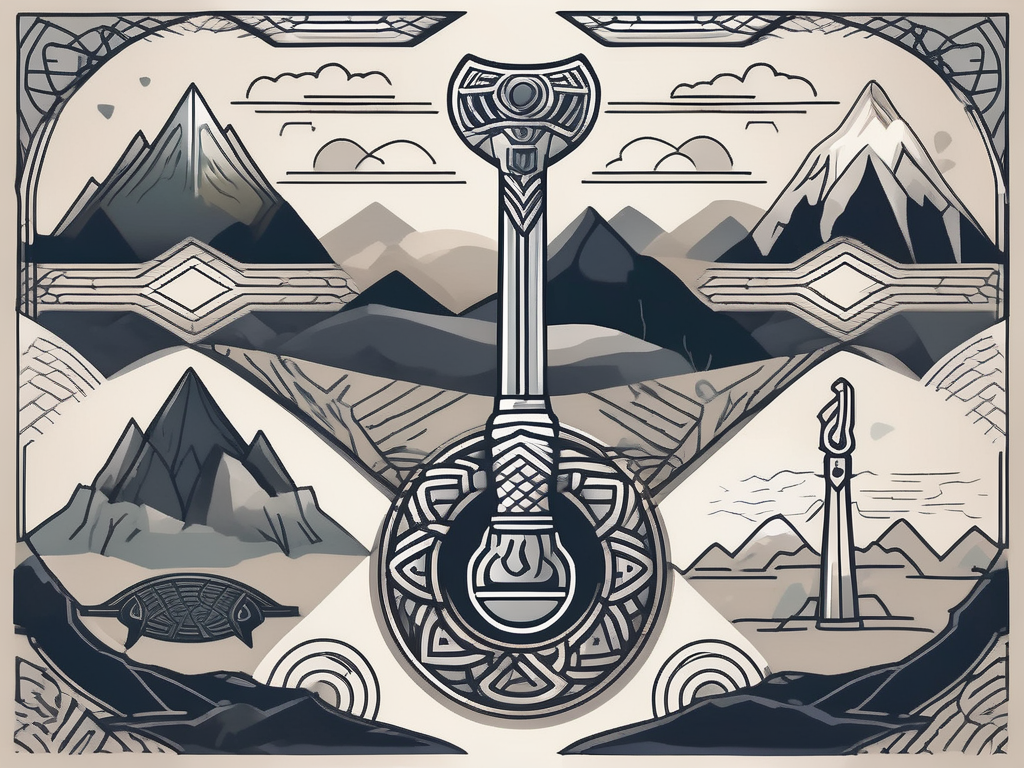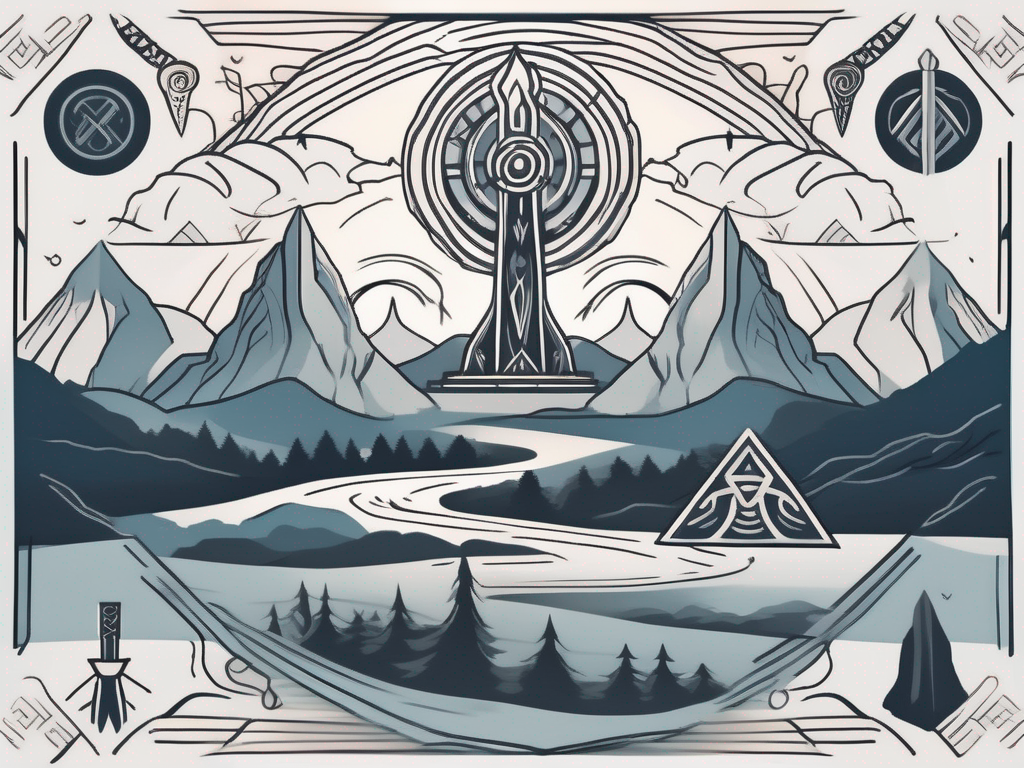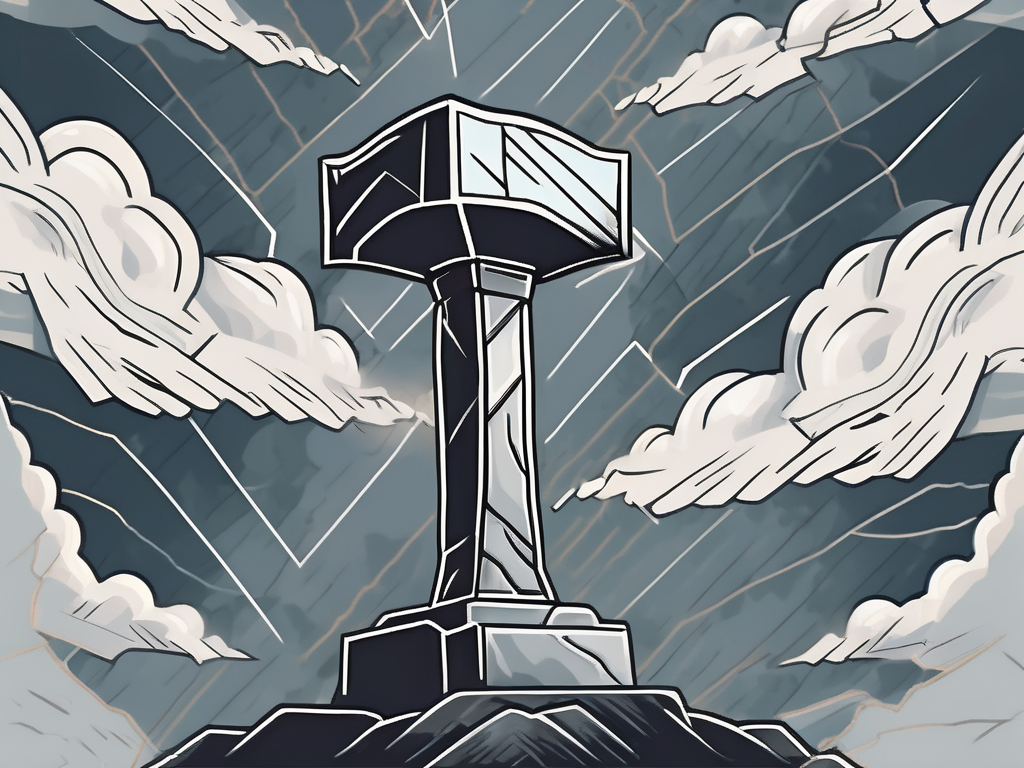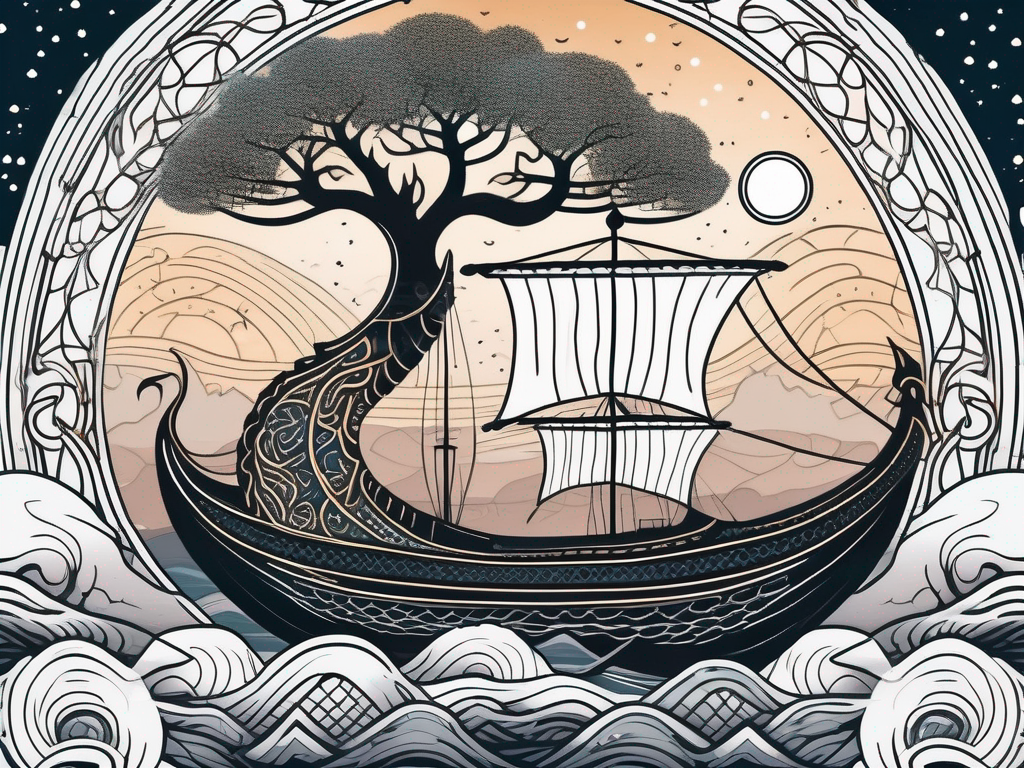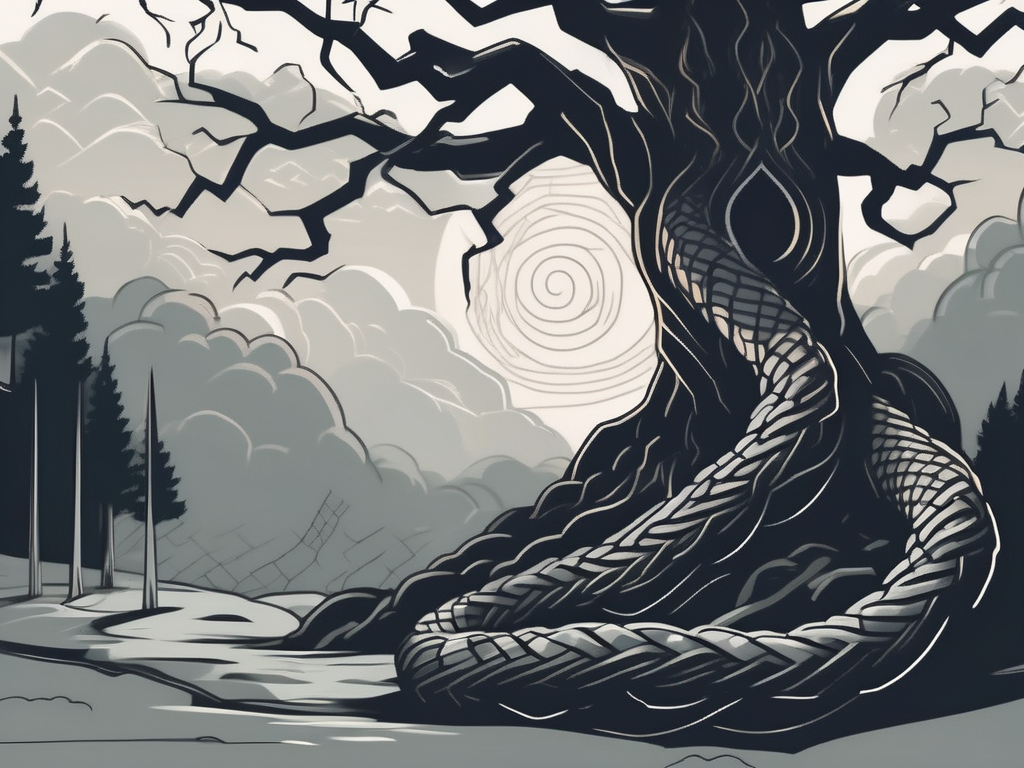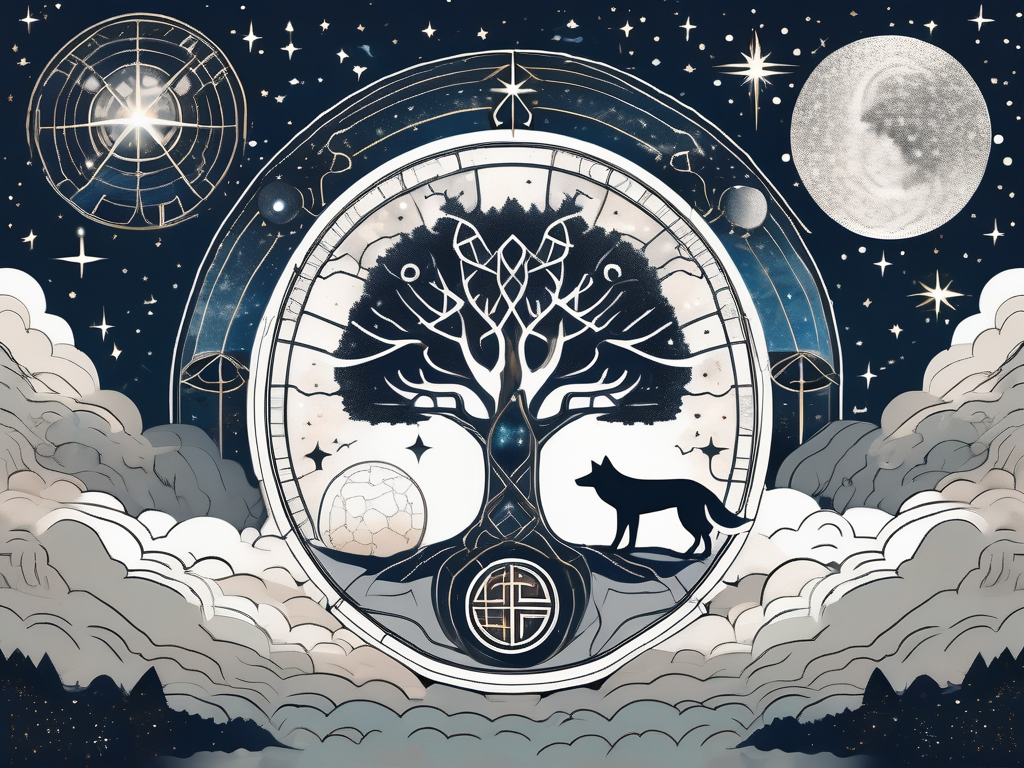In the realm of mythology, two ancient civilizations have left an indelible mark on the world – the Greeks and the Norse. From the mighty Zeus to the mischievous Loki, their pantheons have fascinated us with tales of epic proportions. In this article, we will delve into the captivating world of Greek and Norse gods, exploring their roles, unique characteristics, and the impact they continue to have on modern culture and literature.
Understanding Mythology: An Overview
Before we embark on this mesmerizing journey, let’s first grasp the essence of mythology itself. Mythology serves as a vehicle for ancient cultures to express their beliefs, values, and explanations for the natural world. These vibrant narratives not only entertained but also provided guidance and offered glimpses into the human condition.
Across various civilizations, mythology played a crucial role in shaping their religious practices, rituals, and social structures. The ancient Greeks and Norse were no exception, each weaving their own tapestry of divine beings and fascinating legends.
The Role of Mythology in Ancient Cultures
Mythology held a prominent place in the lives of both the Greeks and the Norse. For the Greeks, these stories were a way to comprehend the complexities of life, morality, and the interplay between gods and mortals. They believed that their gods, like Zeus and Athena, directly influenced their daily lives, granting both blessings and curses.
The Norse, on the other hand, viewed their gods as protectors and patrons of various aspects of existence. From Thor, the god of thunder, to Freya, the goddess of love, their pantheon symbolized the forces of nature that governed the world around them. Understanding and appeasing these gods through rituals and sacrifices were essential for a harmonious existence.
Delving deeper into Greek mythology, we find a rich tapestry of gods and goddesses, each with their own unique stories and attributes. Zeus, the king of the gods, ruled over Mount Olympus and held dominion over the sky and thunder. Athena, the goddess of wisdom and warfare, was known for her strategic prowess and guidance in times of conflict. These gods, along with a myriad of others, formed a complex web of relationships and rivalries, shaping the lives of mortals and immortals alike.
Turning our attention to Norse mythology, we discover a world filled with epic battles and heroic feats. The gods of the Norse pantheon were not only protectors but also warriors, battling mythical creatures and giants to maintain order in the cosmos. Thor, with his mighty hammer Mjolnir, defended Asgard from the forces of chaos, while Odin, the Allfather, sought wisdom and knowledge through his sacrifices and travels. These tales of bravery and sacrifice resonated deeply with the Norse people, reflecting their own values and struggles.
Key Differences Between Mythologies
While both mythologies revolved around gods and their interactions with humans, they possessed distinct characteristics that set them apart. Greek mythology was renowned for its extensive pantheon, with each deity assigned specific roles, characteristics, and domains. The gods of Olympus, with their intricate family tree and complex relationships, created a dynamic and intricate mythology that explored various aspects of human existence.
In contrast, Norse mythology portrayed gods as flawed, displaying more human-like qualities such as jealousy, treachery, and, at times, altruism. These gods were seen as protectors of the Viking way of life, valiantly battling mythical creatures and giants to preserve order. The Norse pantheon, with its emphasis on honor, courage, and the cyclical nature of life, reflected the harsh realities of the Scandinavian landscape and the challenges faced by its people.
As we delve deeper into the realms of mythology, we will uncover a multitude of captivating stories and fascinating characters. From the heroic exploits of Hercules to the tragic love affair of Odin and Frigg, mythology continues to captivate our imagination and offer insights into the human experience. So, let us embark on this enchanting journey and explore the vast tapestry of myths and legends that have shaped our world.
The Pantheon of Greek Gods
Step into the realm of the Greek gods, where Mount Olympus stood as their majestic abode. This pantheon boasted a plethora of awe-inspiring deities, each with their own stories and domains.
Major Greek Gods and Their Roles
At the very pinnacle of Greek mythology was Zeus, the mighty sky and thunder god. Renowned for his lightning bolt and stern judgment, Zeus ruled over both gods and mortals. His siblings, Poseidon and Hades, governed the sea and the underworld, respectively.
The goddesses of wisdom (Athens), love (Aphrodite), and war (Ares) played integral roles in Greek mythology as well. From the enchanting Apollo, the god of music, to the compassionate Artemis, the goddess of the hunt, each deity encompassed a distinct aspect of human life and nature.
Unique Characteristics of Greek Mythology
Greek mythology, with its grand tales of heroism and tragedy, captivated audiences for centuries. These myths often showcased the enduring power of Greek gods and their involvement in mortal affairs. Dramatic sagas like the Odyssey and the Iliad highlighted the complex relationships between gods and humans, resonating with timeless themes of hubris, fate, and divine intervention.
These myths were embraced by the Greeks as a way to explore the human condition and grapple with existential questions. They celebrated virtues such as bravery and cunning, while cautioning against arrogance and moral transgressions.
The Pantheon of Norse Gods
Now, let us journey into the ethereal realm of Norse mythology, where gods and giants waged epic battles amidst the frozen landscapes of the North. In this rugged domain, Valhalla, the celestial hall of the slain, awaited those warriors who met a noble end.
Major Norse Gods and Their Roles
Odin, the All-Father and the ruler of Asgard, led the Norse pantheon. Known for his wisdom, Odin sacrificed his eye for a sip from the Well of Knowledge, gaining immense knowledge and foresight. He was accompanied by the powerful Thor, the god of thunder, renowned for wielding Mjolnir, his enchanted hammer.
Another prominent figure was Loki, the mischievous trickster god with ever-shifting allegiances. Despite his unpredictable nature, Loki’s cunning often aided the Norse gods in their quests and battles.
Unique Characteristics of Norse Mythology
Norse mythology possessed a distinct flavor, with its tales of valor, exploration, and harsh landscapes. Unlike the Greeks, the Norse had a strong focus on fate and destiny, believing in an unyielding predetermined path for each individual.
These myths often portrayed gods and humans as intertwined, with dramatic accounts of their interactions. The Norse gods embodied both virtue and imperfection, defying the traditional notion of divine omnipotence. Their narratives captured the harsh realities of the Viking world, forging a connection with the mortal realm that was both relatable and enlightening.
Comparative Analysis: Greek vs Norse Gods
With their respective pantheons established, let us now explore the similarities and differences between the Greek and Norse gods, offering insights into their roles, attributes, and the way they were worshiped.
Similarities in Roles and Attributes
Both the Greek and Norse pantheons revolved around multi-faceted gods who controlled various aspects of existence. They shared gods associated with war, wisdom, love, and more. For example, Ares and Odin represented war in their respective mythologies, underscoring the universality of human experiences.
Moreover, these gods possessed distinct symbols and attributes that defined their identities. For instance, Aphrodite represented love through her beauty and charm, while Freya’s domain of love was marked by her fondness for jewelry and magical adornments.
Differences in Worship and Influence
Greek and Norse gods not only differed in their mythology but also in how they were worshiped. In Greece, grand temples and festivals were dedicated to the gods. People sought divine favor through sacrifices and rituals, hoping to appease their deities.
The Norse, on the other hand, placed less emphasis on structures and rituals. They believed that the gods’ favor was earned through acts of bravery and heroism in battle, with warriors aspiring to attain a place in Valhalla.
Impact on Modern Culture and Literature
The tales of Greek and Norse gods have not faded into obscurity with the passing of time. Rather, they continue to shape modern culture and literature, leaving an enduring legacy that resonates with people of all ages.
Greek Gods in Modern Media
From movies like “Clash of the Titans” to bestselling novels like “Percy Jackson and the Olympians,” Greek mythology has found a prominent place in popular culture. These stories of divine conflict, heroism, and tragedy continue to inspire countless works in literature, art, and film.
Ah, the allure of Mount Olympus and the charismatic gods that once walked among mortals! Even today, their divine personas continue to captivate our imaginations, reminding us of the timeless struggle between cosmic forces.
Norse Gods in Modern Media
The mesmerizing world of Norse mythology has experienced a resurgence in recent years, thanks to the popularity of characters like Thor and Loki in Marvel’s cinematic universe. These adaptations have introduced a new generation to the rugged allure of the Norse gods, reigniting an interest in their rich mythology.
Furthermore, Norse mythology has influenced literature, music, and even video games. The epic sagas of valiant Vikings and gods battling giants have woven themselves into the fabric of contemporary storytelling, providing a source of inspiration for creators and immersing audiences in a world filled with mighty warriors and grand quests.
In Conclusion
As we conclude our mythological showdown, we realize that Greek and Norse gods are more than just ethereal beings—they embody the hopes, fears, and aspirations of ancient civilizations. These tales of gods and mortals reveal our shared humanity, reminding us of the eternal struggle between our higher aspirations and our flawed nature.
Whether it’s the legends of Zeus and Poseidon or the tales of Odin and Thor, these mythical realms continue to enchant and enlighten us, bridging the gap between the ancient past and the present. So, go forth, immerse yourself in these mythological wonders, and let the gods reveal their extraordinary tales of power, love, and the enduring ties that bind us all.
